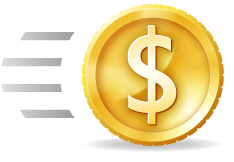
Microsoft has released the latest set of data for its controversial Live Search Cashback program, which offers users monetary incentives to click through and buy goods from the ads they’re shown. The results? Things seem to be looking good from a ROI perspective, as users are responding to the ads more than they typically do on other search engines (though this isn’t very surprising, as they are being offered money). More significant is the fact that Microsoft’s share of ad dollars has risen significantly, especially in proportion to its relatively weak market share (which has largely languished, despite the new program).
Microsoft is reporting that according to Comscore, Live Search referred 12% of all commercial transactions across the web – a number that is much smaller than Google’s referral share, but one that is also significantly larger than Live Search’s market share, which hovered around 9% during the same period. This makes the Live Search user base very appealing to advertisers, as it shows that they’re more likely to purchase goods than their Google counterparts.
Since May, Live Search has seen strong advertiser response – the company reports a 30% growth in Cashback offers made to customers, with 20 of the web’s 50 top online retailers in the U.S. are now on board. To help bolster its offerings, Microsoft has partnered with e-commerce shopping carts Miva Merchant, Early Impact Inc. (ProductCart) and 3DCart, which help small and mid-sized retailers run online stores. These smaller companies will now be able to promote their goods through the cashback program.
Microsoft also reports an average 4.5 million unique users of CashBack – a significant base but only a drop in the bucket compared to the gains needed to catch up with Google. After an initial bump in search market share the engine’s traffic quickly declined back to its former value. Clearly CashBack isn’t the answer to all of Microsoft’s search engine woes – even if its ads are seeing encouraging returns, Microsoft still has to pay out a significant chunk of the proceeds to users participating in the program. But it’s a good differentiator, and at this point innovation is probably the only thing that can take a sizeable bite out of Google’s market share.